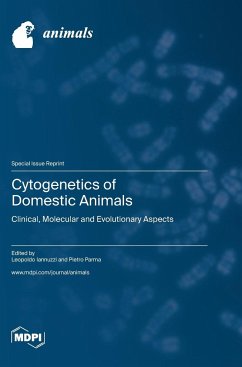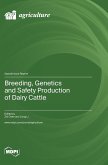The present Special Issue refers to the last 30 years of contributions to the application of cytogenetics to domestic animals, as clearly reported in the five-paper review. In addition, eight original contributions regarding the cytogenetics of several animal species are included. In each contribution, several thematic areas and various cytogenetic techniques are proposed to better demonstrate the potentiality of this biological technology in the genetic improvement of livestock. Special attention was paid to the presence of chromosomal abnormalities in domestic animals and their effects on reproduction, suggesting the routine use of karyotype analyses on reproducers to drastically reduce the effects on reproduction and the economic losses encountered by breeders. In addition to classical cytogenetic analyses such as chromosome banding, the use of molecular cytogenetics, especially the FISH mapping technique, with both specific molecular markers (generally BAC clones) and chromosome painting probes were emphasized in all papers to better study the following: (a) Chromosomal abnormalities; (b) The chromosomal evolution of species; (c) Physical gene mapping in light of genomic sequences in the most important domestic species. Finally, a specific review is dedicated to molecular cytogenetics, in which examples of applied molecular techniques, including the FISH technique, comparative genomic hybridization array, and PCR-based method, are reported.








